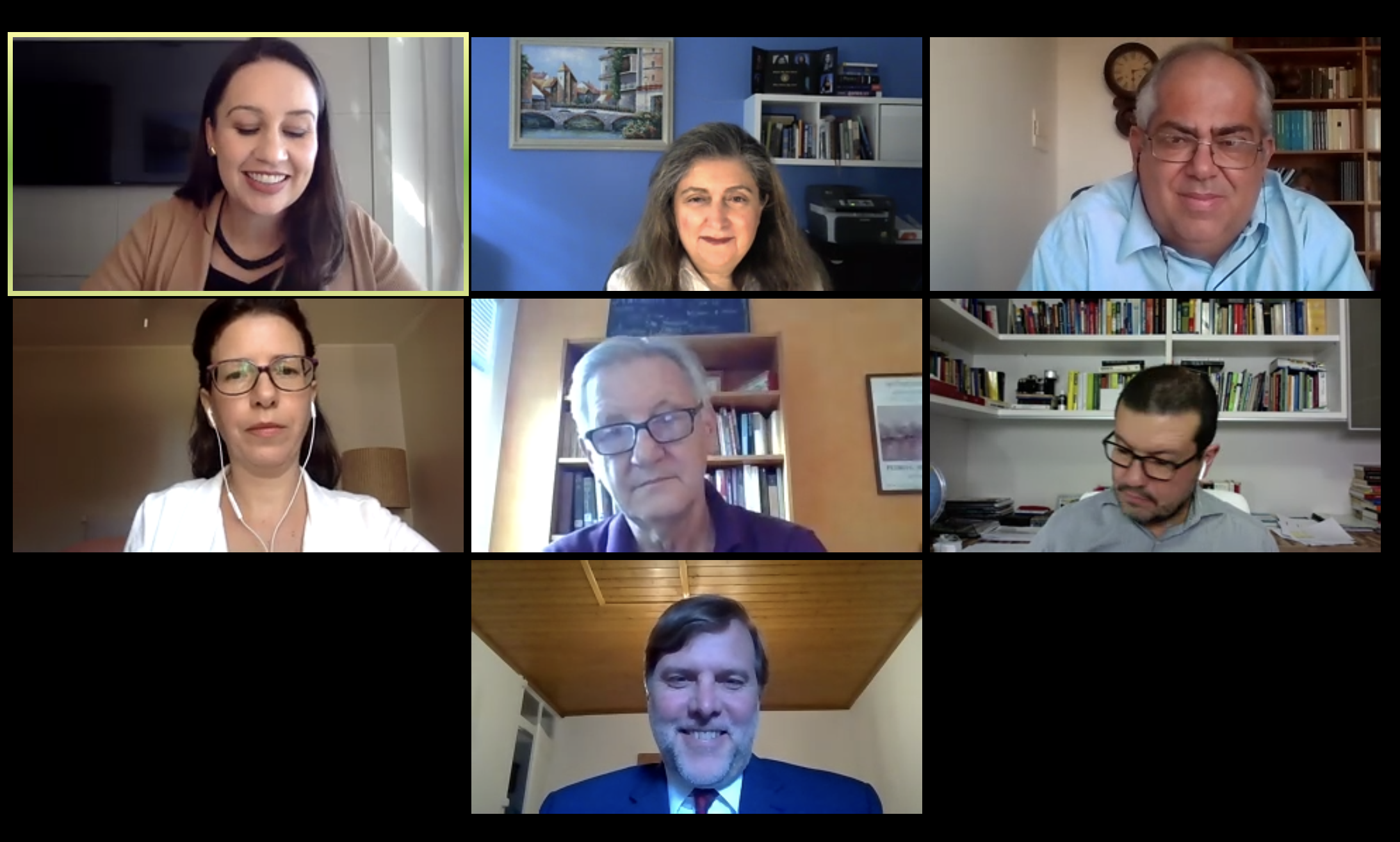
Summer Course Discusses Reform of the World Trade Organization (WTO): The Effect of Pandemic on World Trade and Trade in the Post-Pandemic World
As part of AUWCL’s summer program on WTO and U.S. Trade Law and Policy, pre-eminent trade experts from the United States and around the world shared their views on the reform of the World Trade Organization (WTO), the effects from the pandemic, and the rise of nationalism on global trade. These discussions were held shortly before the closing lecture by the Deputy Director General of the WTO, Alan Wolff, discussing historical examples of the linkage between international trade with global peace and security.
WTO Reform
Discussing the challenges within the WTO, participants expressed concerns about the underlying issue of global governance and how a lack of global coordination has impeded any attempt to reform the WTO. Speakers agreed that the only way forward for the global community is to have international rules with effective international mechanisms to enforce these rules, as opposed to the merely hortatory language prevalent in the international instruments today. This has indeed been the strength of the WTO with its historical robust dispute settlement mechanism. To that end, a suggestion was made that the WTO reform efforts should concentrate on first rebuilding a robust rules making process and wait on the issue of the Appellate Body mechanism. It was argued that robust rule making, even if using plurilateral agreements, is the way to proceed. Particular reference was made to the future role of Africa that has –till now—been denied “agency” in large measure in developing the rules and structures of the multilateral trading system. It was emphasized that bilateral or plurilateral free trade agreements could work well if fully inspired by the principle of reciprocity.
Speakers added that the WTO Secretariat and the Director General should take on more responsibility and increase their contributions in research and the formulation of proposals.. The input provided by the Secretariat could further strengthen the existing Trade Policy Review mechanism.
Another idea expressed was the need for strengthening strategic planning at the WTO in line with other practices at organizations such as the IMF with the creation of an Executive Board that could lead the planning within the WTO.
The Future of the WTO Appellate Body
Since the Appellate Body ceased to function on December 10, 2019, widespread concerns about the future of the rules-based multilateral trading system have deepened. While the system continues to operate, with panels still being established as the demand for dispute settlement remains intact, the absence of an appeal mechanism remains a major obstacle to the effective functioning of the system to maintain stability and predictability. The lack of a functioning Appellate Body also holds the risk that States may appeal to the Appellate Body just to avoid the enforcement of the panel decisions and de facto block the system.
The experts discussed the Appellate Body’s remarkable contributions to the multilateral trading system since its inception, what led to the current impasse, predictions for where we go from here and the viability of the Multi-Party Interim Appeal Arbitration Arrangement (MPIA) as an interim solution for the Appellate Body.
In noting the problems that led to the demise of the Appellate Body, it was noted that the root of the problem was that the Appellate Body undermined its important accomplishments by taking on an expansive role thereby departing from its original mandate. Speakers attributed this to a lack of effective oversight by the WTO members which led to a mission creep, with the Appellate Body assuming the role of the members, filling in the gaps and positioning itself seemingly at the apex of the WTO. It was suggested that the solution is for the Appellate Body to be reformed so as to ensure it operates as originally intended.
One dominant theme that appeared in many days of discussion is lack of “trust” among nations—this “trust deficit” informs all actions taken by individual members and will impede any reform of the WTO and endangers the future of multilateralism.
The full program and bios of the speakers and panelists at this Summer Certificate Program on WTO and U.S. Trade Law and Policy can be found here. The final two events of this course, i.e. the panel on “Trade in a Post-Pandemic World” and the closing conference by Alan Wolff on “Trade and Peace” are publicly available on Youtube.